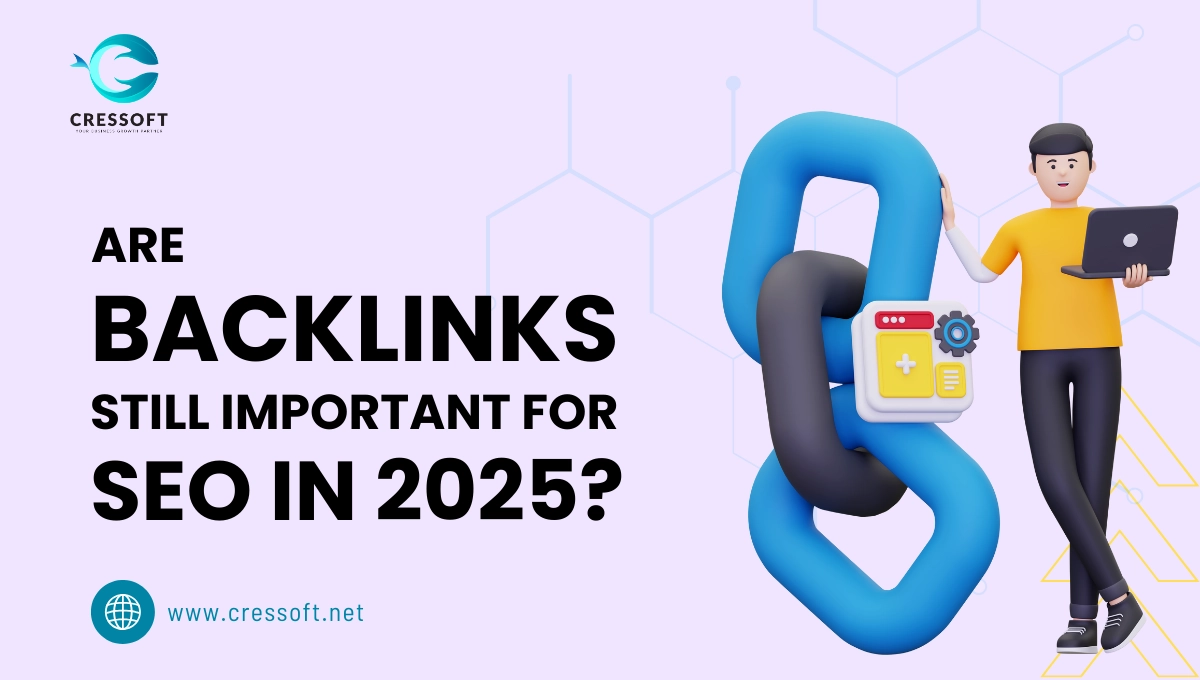Some people say backlinks aren’t that important anymore. A big mistake many businesses make is focusing only on on-page SEO (like keywords and technical fixes). While these are useful, they won’t work on their own. If your site doesn’t have quality backlinks, it will be hard to rank on top and stay visible on Google, especially for high keyword difficulty. The days of acquiring random and low-quality links just as a trick for Google are over. Today, backlinks need to come from trusted, relevant sites. As Google always says, focus on making great content, and the links will follow naturally. Back in the day, link building accounted for almost half of Google’s ranking factors. However, these days, backlinks account for around 15% of what helps a page rank as Google continues to improve its understanding of content. Many Independent SEO studies have shown that backlinks have a big impact on how well a website performs in organic search.
Are backlinks still important for SEO Today?
Let’s connect and clear things up! In this article, we’ll explain what Google says about backlinks, what real-world research shows, and why backlinks are still important, not just for SEO rankings but also for helping your site show up in AI search results.
What’s the concept of backlinks?
Backlinks are the external links from other websites that send visitors to your website. They are a very important part of search engine optimization (SEO) because they tell search engines like Google that your website is trusted, reliable, and relevant. They act like voting for your website. Search engines use these backlinks as one of the ways to decide how high your website should show up in search results.
Backlink Analysis
When you start backlink analysis, first examine where the backlink appears. The main content sentences usually contain some good backlinks that are inside. Next, check the backlink. Make sure that it matches your topic. Good backlinks show up in the text organically. They can talk about topics that are similar to your website.
SEO benefits from backlinks, combining location and topic relevance aspects. On the other hand, backlinks within the navigation or footer do not help much.
Good backlinks or Bad backlinks:
When you analyze backlinks, you’ll need to differentiate between good backlinks and bad backlinks. Let’s break down the difference between good backlinks and bad backlinks.
Good backlinks
Good backlinks come from a relevant, trusted, and high-quality website. They are embedded in the main content, using natural anchor text, bringing real traffic, and coming from a wide variety of different websites that make the link profile appear natural.
When creating backlinks for your website, be sure you consider these attributes:
Relatable: Try to obtain backlinks from websites that are linked to your content or industry.
Authority: Get links from websites that have high authority. These websites have built trust and, therefore, increase the value of the links to your website.
Organic: Earn your backlinks organically without having to ask for them. When your content is valuable, backlinks will be generated without any prompting.
Create links naturally: Naturally, link to your backlinks in the body of the content. When links are placed in the content, they are valuable to the reader and not spammy-looking.
Follow links: You always want to get “do follow” backlinks. Dofollow backlinks will pass authority to your website.
Bad backlinks
Bad backlinks come from spammy, low-quality, or irrelevant websites. They usually sit in a sidebar and/or footer of a website, and they often use forced or keyword-stuffed anchor text. Google doesn’t like these links, which lowers your site’s trust and can lead to drops in ranking for using these links.
Untrusted links can hurt your site and lower your rankings. You should avoid:
Irrelevant sources: Links from websites that have nothing to do with your topic confuse Google and make your site look less trustworthy.
Low-quality or spammy sites: If your site has links from low-quality or penalized sites, then the search engines do not regard your site very highly for increasing your trust authority.
Paid links: Buying backlinks is against Google’s guidelines and could result in your site being slapped with a penalty.
Why are backlinks important in SEO?
Yes, Inbound links still matter for Google ranking. Some even call them the back support of SEO. But, indeed, Google isn’t giving them as much weight as before. Getting good-quality links from other trusted websites can make a big difference in where your site shows up in search results. Good backlinks can make your site look more credible, build authority, and improve your visibility online.
When done correctly, backlinks can:
- Help your site rank higher on Google
- Increase your website’s credibility
- Bring you more visitors from other sites
- Improve your overall domain authority
- Strengthen your brand’s image
- Get your content in front of more people
- Provide long-term SEO benefits
Backlinks act as recommendations for your website. The stronger, trusted websites that recommend you, the better Google sees your site. That’s why link building is still an important part of any SEO strategy, at least for now. As one study put it, companies that invest in a solid off-page SEO plan see much better overall SEO results.
In my opinion, Inbound links still play a big role in helping websites rank. Even though their importance has changed a bit in Google’s algorithm, they shouldn’t be ignored. But keep in mind that the impact of backlinks can vary depending on your website and other ranking factors.
What does Google say about link building?
Create high-quality content:
Write truly helpful blog posts, guides, as well as resources so people will link to and share them.
Links from relevant websites:
Authority is built up more quickly when there are links from the more well-known sites that are in your industry.
Quality above quantity:
One high-quality backlink from one trusted website can have more power than several random and spammy links.
Monitor your backlink profile:
Regularly check your backlink profile to ensure that you are following Google’s rules, and removing harmful or spammy links is important.



